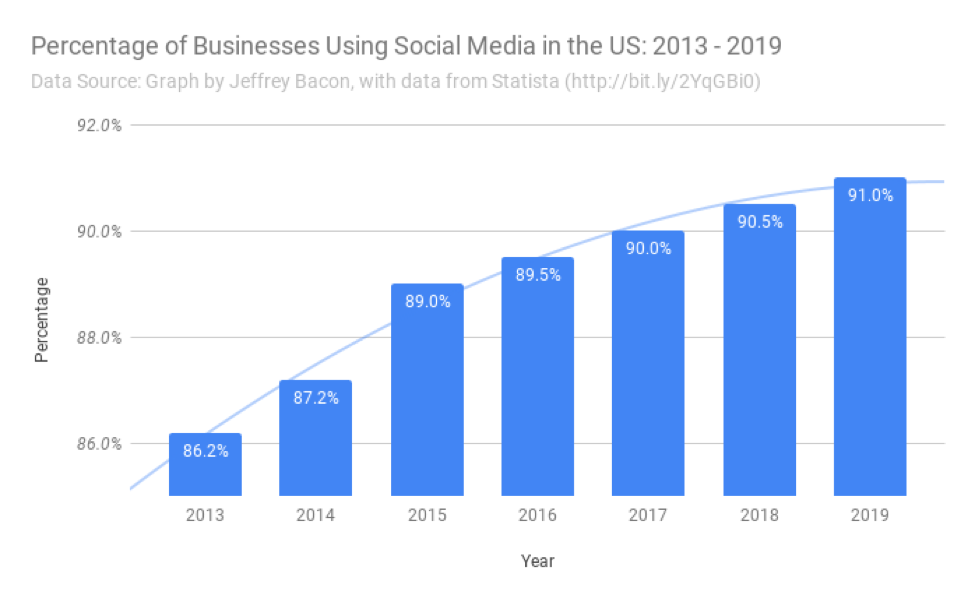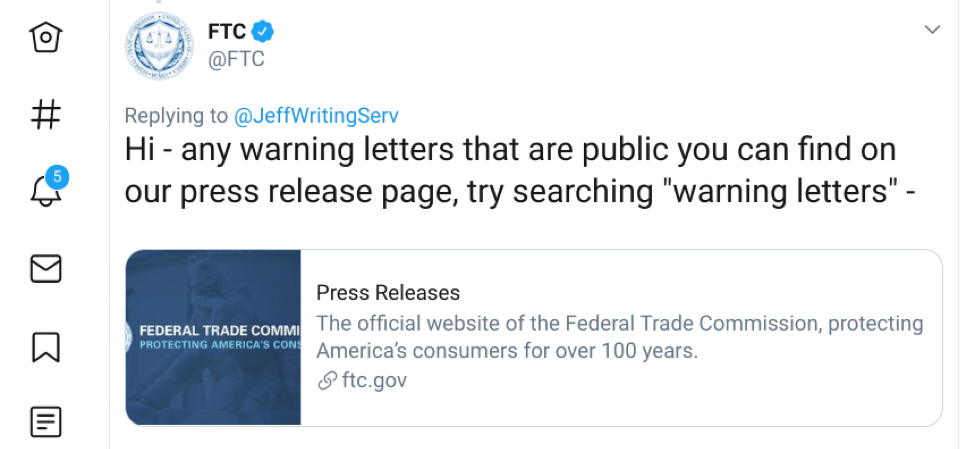How to Comply With Truth-in-Advertising Regulation on Social Media

How to Comply With Truth-in-Advertising Regulation on Social Media
Contributed ContentComplying with truth-in-advertising regulations on social media is integral to staying on the Federal Trade Commission's good side. Learn how your business can comply with any and all regulations.
Most online marketers have learned to keep their paid advertising compliant with Federal Trade Commission (FTC) truth-in-advertising guidelines.
Still, many misunderstand how the law applies to social media marketing. Learning how the FTC has handled truth-in-advertising regulation during 2019 can help marketers stay on top of social media content compliance.
I have been helping businesses and institutions develop compliant copy (texts) for two decades, and I now focus on the dietary supplement industry. The FTC, together with the Food and Drug Administration (FDA), are rich sources of guidelines and demonstrative cases for marketers.
Here, I’ve compiled basic information on how the FDA interprets and delimits truth-in-advertising regulation of social media content, providing examples from cases of non-compliance. This information can help businesses avoid:
- FTC warning letters
- Bad press
- Class-action lawsuits
Use this article to make sure your business complies with social media truth-in-advertising regulations.
How to Comply With Truth-in-Advertising Regulation on Social Media
- Know the FTC Definition of Truth-in-Advertising
- Remember That Paid Advertising Rules Apply to Social Media Marketing
- Know the Consequences of Failed Social Media Content Compliance
- Avoid Unfounded Claims
Know the FTC Definition of Truth-in-Advertising
Businesses must know the FTC definition of truth-in-advertising in order to run a legal marketing operation.
The federal law states that regulated content must be “truthful, not misleading, and, when appropriate, backed by scientific evidence.” Such a broad, sweeping statement, though, leaves businesses with the burden of interpreting where to draw the line without compromising product attractiveness.
Still, businesses must know how the FTC truth-in-advertising to shape their content strategy.
Remember That Paid Advertising Rules Apply to Social Media Marketing
Truth-in-advertising standards and guidelines apply to the social media market, which is growing among U.S. businesses. The FTC, empowered by the Federal Trade Commission Act, regulates how businesses, individuals, and other entities can post paid and unpaid content on social media.

The FTC views the material connection that ties businesses and influencers to social media as grounds for regulating it together with commercials and ads.
Even unpaid follower-generated and inbound social media marketing content fall under this legislation, so social media marketers must apply paid advertising rules when creating content.
Know the Consequences of Failed Social Media Content Compliance
“Guidelines for the Use of Endorsements and Testimonials” explain that when endorsers fail to disclose their “material connection” with brand owners, they break the law. In fact, non-disclosure earned some vape liquid vendors federal warning letters and plenty of bad press.
When the FTC deems a company’s social media content fraudulent, it files an action in a federal district court. This can result in frozen business assets, expensive compensation for victims, and immediate and permanent detention of present and upcoming scams.
Failure to follow up can result in penalties and additional risks, including:
- Bad press
- Class-action lawsuits
- Costly recalls and refunds to compensate and protect consumers
- Expensive scientific research to back product claims
- Burdensome relabeling, repackaging, rebranding, and remarketing to mitigate misrepresentations
- Brand-tarnishing consumer advisory notices to disclose fraudulent practices
- Imposed judgment penalties costing thousands or even millions
Business size does not matter. The FTC and consumer protection groups targeted corporate monsters such as Walmart, Johnson & Johnson, Marriott Hotels, and Red Bull GmnH through small sole proprietors.
Fighting the FTC is costly and complex, so comply with regulations to avoid possible business devastation.
Avoid Unfounded Claims
The FTC will punish businesses that make unfounded claims.
For example, a claim that a product is “protective against the development of cancer” is likely to be an unfounded claim – the claim is too broad and likely difficult to empirically validate.
Fortunately, there are many FTC guidelines for truth-in-advertising standards on the internet.
The FTC will also engage with questions posed on social media, as shown in the image below.

Now, businesses can see exactly what an FTC warning letter looks like because of the FTC's activity on Twitter.
By avoiding unfounded claims, businesses can avoid warning letters, lawsuits, and consumer advisory notices that hamstring many companies.
Keep Your Marketing Materials FTC Compliant
Marketers can avoid FTC warning letters, bad press, and even a lawsuit by learning to keep content FTC compliant. Businesses should:
- Know what the FTC considers “truth-in-advertising”
- Remember that paid advertising rules apply to social media
- Know the consequences of failing to comply with FTC regulations
By complying with FTC truth-in-advertising regulations, businesses will produce honest, truthful content and avoid the damage that comes with FTC investigations.
